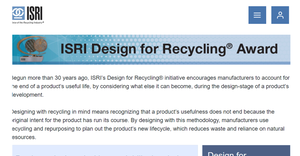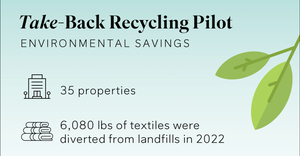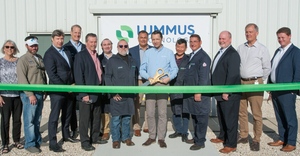Landfill gas to power the University of New Hampshire.
September 1, 2007
CHRIS CARLSON
The University of New Hampshire (UNH), Durham, N.H., has announced the launch of EcoLine, a project that will supply gas from a landfill in Rochester, N.H., to the campus. UNH will receive the gas from Waste Management's Turnkey Recycling and Environmental Enterprise facility at the landfill, and the gas will provide approximately 85 percent of the university's energy. UNH is believed to be the first university in the country to rely so heavily on landfill gas for its energy needs.
“This project will add to the growing roster of landfill gas-to-energy projects operated by Waste Management across the country, and it will help us responsibly allocate the company's resources while providing renewable power to the communities we serve,” said Alan Davis, district manger for Waste Management's Turnkey facility, in a press release. In July, the company announced an initiative to build 60 new gas-to-energy facilities over the next five years. The initiative also calls for 10 new facilities to be completed and 10 more to begin construction by 2008.
The $45 million project, which is completely funded by the university without help from the state, has been in development for three years, says Paul Chamberlin, the university's assistant vice president for energy and campus development. So far, three miles of the 12.7 mi. underground pipeline from the Turnkey facility to the 5 million square-foot Durham campus have been completed. Chamberlin says the pipeline is expected to be complete by the end of November. The pipeline will run four feet underground along Rochester roads, the Spaulding Turnpike and the Pan Am Railway's right-of-way.
The university's processing plant, however, isn't expected to be ready until fall 2008, at which time the project will be fully operational. “By reducing the university's dependence on fossil fuels and reducing our greenhouse gas emissions, EcoLine is an environmentally and fiscally responsible initiative,” said Mark Huddleston, president of UNH, in a press release.
The EcoLine project is expected to stabilize the university's energy costs, which have doubled over the last five years and increased at an annual rate of 19 percent. “Our exposure to market fluctuations is substantially reduced and our ability to forecast cost to meet campus energy needs is greatly improved,” Chamberlin says.
The University of New Hampshire has track record for environmentally sound policy. It claims to be ranked by the U.S. Department of Energy in the top-five percent for energy efficiency among similar colleges and universities. UNH also operates its Wildcat Transit, which is almost exclusively fueled by alternative fuels such as B20 biodiesel.
“We hope that our experience will help other institutions determine if a similar project might work for their campus,” Chamberlin says.
You May Also Like


